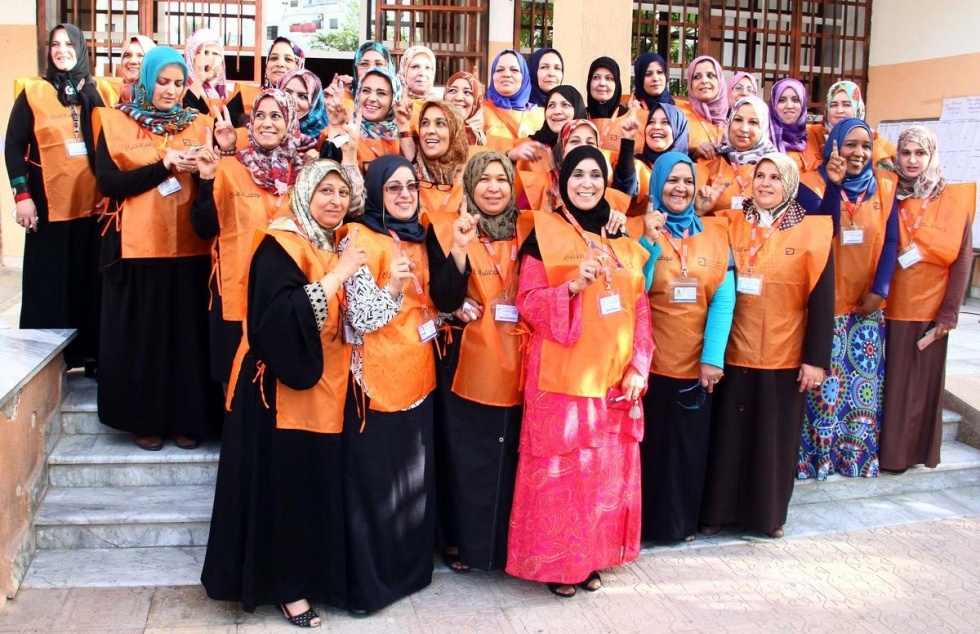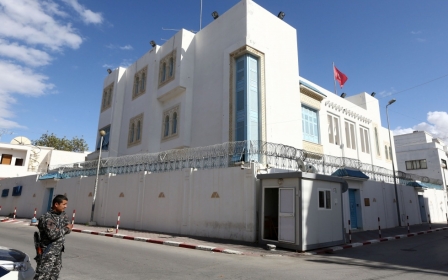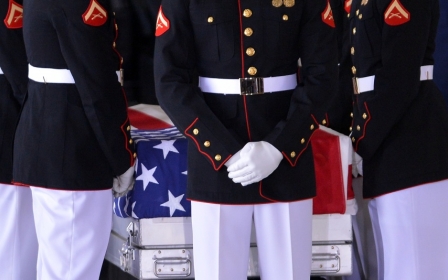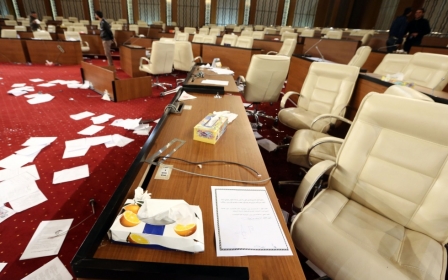Libya post-GNC: the picture looks ever so slightly rosier

Libya has become a synonym for dysfuncitonality, a reputation the country has duly earned in several realms.
Yet, when it comes to holding elections under trying security conditions, not only do Libyans deserve the praise of the international community, but they may even have a few lessons to teach other post-conflict states.
If Libya is still in the news cycle more than a week after the election, it’s largely because the press is still decrying the tragic election-day murder of Benghazi’s heroic anti-militia activist, Salwa Bughaighis.
However, not nearly enough attention is being drawn to the fact that free and fair elections were held in most of Benghazi’s neighbourhoods, including those where extremist groups hold sway. Where election fraud happened in Janzur, it appears to have been detected and is being dealt with.
This is no simple feat, and it amply makes up for the fact that only 42 percent of registered voters cast their ballots and that the overall turnout was slightly less than 20 percent of the eligible population. That even these polling stations were open, shows how all, but the most extremist of militias, believe in the legitimacy of the electoral process and would not resort to arms to jeopardize that legitimacy.
In fact, even in areas where the central government has little to no influence, such as Sirte, Beni Walid, or Misrata, elections largely took place freely and fairly.
In other regions where violence kept voters from the polls, the authorities are now scrambling to organise a re-run. Despite these efforts, however, some polling centres in Derna and other jihadist-controlled areas could not, and will not be opened, due to threats of violence. Elsewhere, the Berbers will continue to boycott the election until their issues with the constitutional committee are settled.
But, in spite of local boycotts and violence, the security situation remained relatively stable on election day. Rogue ex-general Khalifa Haftar respected his promised ceasefire and the Higher National Elections Committee (HNEC) showed both bravery and efficiency during the vote.
The ‘relatively’ high turnout and low violence - especially if compared with the dreadfully low popular expectations - suggest that the House of Representatives, which will replace the dysfunctional GNC, could take charge with a renewed aura of credibility and a new sense of pragmatism, which might be passed on to a new government.
No Time like the Present
Increased legitimacy of the central authorities, of course, would represent the best-case scenario for Libya’s attempt to build functional institutions. To achieve it, the parliament must act promptly and appoint a Prime Minister who will form a government which represents a loose consensus among all of Libya’s major political currents, except Ansar al-Sharia and the most destabalising militias.
Such a ‘national unity government’ might be able to stabilise the security situation in the East and holding new negotiations with the country’s militias and militants. As for federalists-occupied ports, it is encouraging that the new parliament will be less Islamist-dominated than the GNC was, and hence more likely to uphold the current bargain with the federalists struck on July 2nd which sees Libya's biggest oil ports - Ras Lanuf and Al-Sidra - handed over to the government and in the process of becoming ready to receive tankers. Previous attempted bargains with Jadhran fell through because Islamist actors undermined them assuming they could attempt to dominate Jadhran militarily and gain dominance over the oil sector for themselves.
Could the glass actually be half-full?
While improving Libya’s abysmal security situation might be beyond the capacity of even a legitimately elected government free from the zero-sum partisanship of the GNC, newfound credibility for public institutions represents the only chance to stop the cycle of violence.
As election results trickle in over the next two weeks, there is ample reason to suspect that they might gradually shift the dynamics, particularly as anticipation of the results has already pushed towards a limited reconciliation of the country’s major political factions during the holy month of Ramadan.
To be sure: petrol queues, smuggling, kidnappings and robberies are not going anywhere soon. In fact, the security situation is likely to continue to deteriorate as the central authorities still lack coherent security services to constrain the militias.
Meanwhile, the processes of forging a legitimate centre of power, with the ability to govern effectively, are operating simultaneously behind the scenes.
They largely been stalled since February 2014, when protests against the GNC’s extension of its mandate led to an increasing polarisation of the Libyan political scene into binary factions: Islamist and anti-Islamist, pro-GNC and anti-GNC.
Now, after the successful election of the House of Representatives and the progress being logged by the Constitutional Assembly, it seems that the birth pangs of a ‘second post-Qadhafi Libyan state’ could be underway. The scary moment when authority at the centre was contested between two rival prime ministers is a thing of the past. The potential of Haftar’s “Operation Dignity” to fundamentally upend the transition process appears to have been defused with his nearly complete integration into the larger political game combined with forces aligned with him fairing well in the elections.
At this stage, nascent central authorities must gain more traction and kick-start a positive feedback loop by decentralizing their powers to local actors. To do so, the House of Representatives and the new government should establish connections with other de facto power centres and embed themselves as a focal point around which politics in the periphery revolves.
The importance of local actors, be they civic or tribal, is best exemplified by the recent success of a traditional reconciliation process in western Libya, between the city of Zawiya and the Warfalla tribe, which is now hailed as a possible model for other ongoing revenge conflicts like Misrata-Tawarga or Zintan-Mashashiyya.
Furthermore, it is encouraging that Jadhran’s federalists have stated their intention to honour an April agreement with outgoing prime minister Abdullah al-Thinni to open the ports under their control, culminating in their miraculously handing over Ras Lanuf and al-Sidra to the government on Wednesday. This dramatic but not unpredictable development could act as a precursor to further locally-brokered arrangments to finally truly end the political and economic stalemates of the GNC period.
Looking Ahead
With Ramadan underway, the possibility of a major breakthrough in high politics in Tripoli is slim. Most Libyans will spend Ramadan resting with their families and watching TV, whereas top politicians and business leaders are likely to travel abroad, escaping from Libya’s summer heat and power shortages.
The constitutional committee will continue its work, but new security concerns after the 29 June car bombing could weaken its ability to reconcile competing forces, or might drive it in a populist direction.
Recent high-profile outbursts of violence demonstrate how violence often achieves its objectives and pushes Libyan politics towards a populist direction. The national dialogue process could mitigate this trend but, in light of the murder of Bughaighis, it will also wade carefully when discussing militias.
As for security, unfortunately Islamist militiamen and criminal thugs will not allow Libya a Ramadan breather, nor will Operation Dignity let up. The security situation will, therefore, likely remain unstable, and could be further irritated by developments in Iraq that may spark irrational outbursts from both sides.
There is also the possibility that some major players may not recognise the election results, which could seriously damage the House of Representatives’ credibility. Fear created by Bughaighis’ murder could also stifle growing public opposition to rogue militias.
Nonetheless, the possibility of a fully-fledged ‘civil war’, as mentioned by Ibrahim Sharqieh in the NYT, is equally unlikely. Libyans have grown war-weary, and all the primary militias - with the notable exceptions of Ansar al-Sharia and Haftar’s National Army - have no stomach for direct clashes.
Therefore, in the short term, random violence and energy shortages will continue unabated. Outside observers, however, must not dismiss the positive long-term precedent set by the House of Representatives’ election and the potential that this holds for facilitating a power sharing arrangement in Libya.
So we should all be saying “good riddance” to the GNC, because Libya’s future looks ever so slightly rosier without them.
- Jason Pack is a researcher of Middle Eastern history at Cambridge University, president of Libya-Analysis.com, and lead author of Libya’s Faustian Bargains: Breaking the Appeasement Cycle - a think tank report published in May 2014 by the Atlantic Council - which expands on the main themes of this article.
The views expressed in this article belong to the author and do not necessarily reflect the editorial policy of Middle East Eye.
Photo credit: Women proudly show that they voted in Libya's June election (AA)
New MEE newsletter: Jerusalem Dispatch
Sign up to get the latest insights and analysis on Israel-Palestine, alongside Turkey Unpacked and other MEE newsletters
Middle East Eye delivers independent and unrivalled coverage and analysis of the Middle East, North Africa and beyond. To learn more about republishing this content and the associated fees, please fill out this form. More about MEE can be found here.





